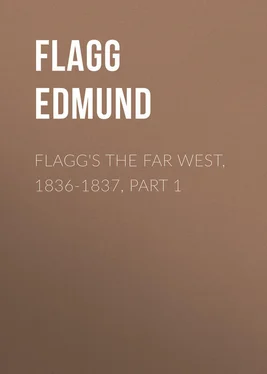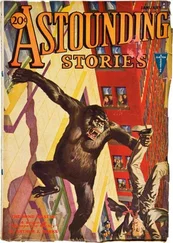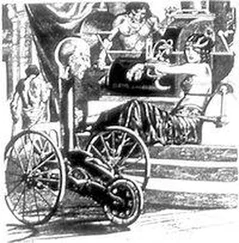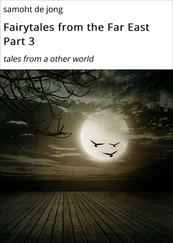Edmund Flagg - Flagg's The Far West, 1836-1837, part 1
Здесь есть возможность читать онлайн «Edmund Flagg - Flagg's The Far West, 1836-1837, part 1» — ознакомительный отрывок электронной книги совершенно бесплатно, а после прочтения отрывка купить полную версию. В некоторых случаях можно слушать аудио, скачать через торрент в формате fb2 и присутствует краткое содержание. Издательство: Иностранный паблик, Жанр: foreign_antique, foreign_prose, Путешествия и география, на английском языке. Описание произведения, (предисловие) а так же отзывы посетителей доступны на портале библиотеки ЛибКат.
- Название:Flagg's The Far West, 1836-1837, part 1
- Автор:
- Издательство:Иностранный паблик
- Жанр:
- Год:неизвестен
- ISBN:нет данных
- Рейтинг книги:4 / 5. Голосов: 1
-
Избранное:Добавить в избранное
- Отзывы:
-
Ваша оценка:
- 80
- 1
- 2
- 3
- 4
- 5
Flagg's The Far West, 1836-1837, part 1: краткое содержание, описание и аннотация
Предлагаем к чтению аннотацию, описание, краткое содержание или предисловие (зависит от того, что написал сам автор книги «Flagg's The Far West, 1836-1837, part 1»). Если вы не нашли необходимую информацию о книге — напишите в комментариях, мы постараемся отыскать её.
Flagg's The Far West, 1836-1837, part 1 — читать онлайн ознакомительный отрывок
Ниже представлен текст книги, разбитый по страницам. Система сохранения места последней прочитанной страницы, позволяет с удобством читать онлайн бесплатно книгу «Flagg's The Far West, 1836-1837, part 1», без необходимости каждый раз заново искать на чём Вы остановились. Поставьте закладку, и сможете в любой момент перейти на страницу, на которой закончили чтение.
Интервал:
Закладка:
Father de Smet's writings on missionary subjects ended only with his death, and were increasingly voluminous and detailed. The Letters and Sketches were his first published work, with the exception of a portion of a compilation that appeared in 1841, on the Jesuit missions of Missouri. We find therefore, in the present reprint, the vitality and enthusiasm of the young traveller relating new scenes, and the abounding joy of the successful missionary uplifting a barbaric race. The book was written with the avowed purpose of creating interest in his newly-organized work, and securing contributions therefor. The freshness of description, the wholesome simplicity of the narrative, the frank presentation of wilderness life, charm the reader, and make this book a classic of early Western exploration. Cast in the form of letters, wherein there is more or less repetition of statement, it is nevertheless evident that these have been subjected to a certain editorial revision, and that literary quality has been considered. Aside from the interest evoked by the personality of the writer, and the events of his narrative, the work throws much light upon wilderness travel, the topography and scenery of the Rocky Mountain region, and above all upon the habits and customs, modes of thought, social standards, and religious conceptions of the important tribes of the interior.
After the present series of reprints had been planned for, and announced in a detailed prospectus, there was issued from the press of Francis P. Harper of New York the important volumes edited by Major H. M. Chittenden and Alfred Talbot Richardson, entitled Life, Letters, and Travels of Father Pierre Jean de Smet, S. J., 1801-73 . This publication contains much new material, derived from manuscript sources, which has been interwoven in chronological order with the missionary's several books; and to it all have been added an adequate biography and bibliography of De Smet. This scholarly work has been of great service to us in preparing for accurate reprint the original editions of the only two of Father de Smet's publications that fall within the chronological field of our series.
In the preparation for the press of Flagg's The Far West , the Editor has had the assistance of Clarence Cory Crawford, A. M.; in editing Father de Smet's Letters and Sketches , his assistant has been Louise Phelps Kellogg, Ph.D.
R. G. T.Madison, Wis., April, 1906.
TO THE READER
"He that writes
Or makes a feast, more certainly invites
His judges than his friends; there's not a guest
But will find something wanting or ill dress'd."
In laying before the majesty of the public a couple of volumes like the present, it has become customary for the author to disclaim in his preface all original design of perpetrating a book , as if there were even more than the admitted quantum of sinfulness in the act. Whether or not such disavowals now-a-day receive all the credence they merit, is not for the writer to say; and whether, were the prefatory asseveration, as in the present case, diametrically opposed to what it often is, the reception would be different, is even more difficult to predict. The articles imbodied in the following volumes were, a portion of them, in their original, hasty production, designed for the press; yet the author unites in the disavowal of his predecessors of all intention at that time of perpetrating a book .
In the early summer of '36, when about starting upon a ramble over the prairies of the "Far West," in hope of renovating the energies of a shattered constitution, a request was made of the writer, by the distinguished editor of the Louisville Journal, to contribute to the columns of that periodical whatever, in the course of his pilgrimage, might be deemed of sufficient interest. 3 3 George D. Prentice (1802-70), founder of the Louisville Journal , was graduated from Brown University in 1823. Two years later he became editor of the Connecticut Mirror and in 1828-30 had charge of the New England Weekly Review . In the spring of 1830, at the earnest solicitation of several influential Connecticut Whigs, he went West to gather data for a life of Henry Clay. Once in Kentucky he threw all the force of his political genius in support of Clay's policy. On November 24, 1830, he issued the first number of the Louisville Journal , which through his able management was soon recognized as the chief Whig organ in the West. Wholly devoted to Clay's cause, its own reputation rose and declined with that of its champion. The Journal maintained an existence till 1868, when Henry Watterson consolidated it with the Courier, under the title of Courier-Journal . Prentice is reputed to have been the originator of the short, pointed paragraph in journalism. His Life of Henry Clay (Hartford, 1831) is well known. In 1859 he published a collection of poems under the name Prenticeana (New York). It was reprinted in 1870 with a biography of the author by G. W. Griffin (Philadelphia). – Ed.
A series of articles soon after made their appearance in that paper under the title, " Sketches of a Traveller ." They were, as their name purports, mere sketches from a traveller's portfeuille , hastily thrown upon paper whenever time, place, or opportunity rendered convenient; in the steamboat saloon, the inn bar-room, the log-cabin of the wilderness, or upon the venerable mound of the Western prairie. With such favour were these hasty productions received, and so extensively were they circulated, that the writer, on returning from his pilgrimage to "the shrine of health," was induced, by the solicitations of partial friends, to enter at his leisure upon the preparation for the press of a mass of MSS. of a similar character, written at the time, which had never been published; a thorough revision and enlargement of that which had appeared, united with this , it was thought, would furnish a passable volume or two upon the "Far West." Two years of residence in the West have since passed away; and the arrangement for the press of the fugitive sheets of a wanderer's sketch-book would not yet, perhaps, have been deemed of sufficient importance to warrant the necessary labour, had he not been daily reminded that his productions, whatever their merit, were already public property so far as could be the case, and at the mercy of every one who thought proper to assume paternity. "Forbearance ceased to be longer a virtue," and the result is now before the reader. But, while alluding to that aid which his labours may have rendered to others, the author would not fail fully to acknowledge his own indebtedness to those distinguished writers upon the West who have preceded him. To Peck, Hall, Flint, Wetmore, and to others, his acknowledgments are due and are respectfully tendered. 4
In extenuation of the circumstance that some portions of these volumes have already appeared, though in a crude state, before the public, the author has but to suggest that many works, with which the present will not presume to compare, have made their debut on the unimposing pages of a periodical. Not to dwell upon the writings of Addison and Johnson, and other classics of British literature, several of Bulwer's most polished productions, the elaborate Essays of Elia, Wirt's British Spy, Hazlitt's Philosophical Reviews, Coleridge's Friend, most of the novels of Captain Marryatt and Theodore Hook, and many of the most elegant works of the day, have been prepared for the pages of a magazine.
And now, with no slight misgiving, does the author commit his firstborn bantling to the tender mercies of an impartial public. Criticism he does not deprecate, still less does he brave it; and farther than either is he from soliciting undue favour. Yet to the reader , as he grasps him by the hand in parting, would he commit his book, with the quaint injunction of a distinguished but eccentric old English writer upon an occasion somewhat similar:
Читать дальшеИнтервал:
Закладка:
Похожие книги на «Flagg's The Far West, 1836-1837, part 1»
Представляем Вашему вниманию похожие книги на «Flagg's The Far West, 1836-1837, part 1» списком для выбора. Мы отобрали схожую по названию и смыслу литературу в надежде предоставить читателям больше вариантов отыскать новые, интересные, ещё непрочитанные произведения.
Обсуждение, отзывы о книге «Flagg's The Far West, 1836-1837, part 1» и просто собственные мнения читателей. Оставьте ваши комментарии, напишите, что Вы думаете о произведении, его смысле или главных героях. Укажите что конкретно понравилось, а что нет, и почему Вы так считаете.












